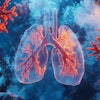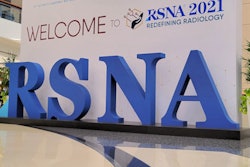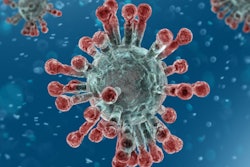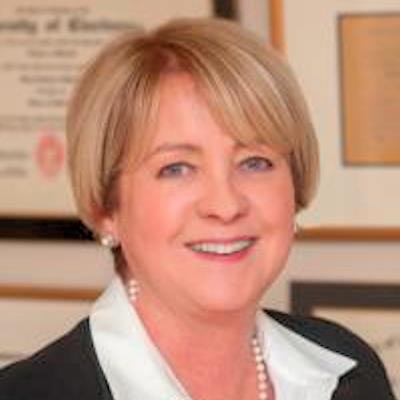
Radiology needs to use the lessons it has learned from the COVID-19 pandemic to redefine itself as a value-based, service-oriented specialty, according to the president's address by Dr. Mary Mahoney in the opening session Sunday afternoon at RSNA 2021.
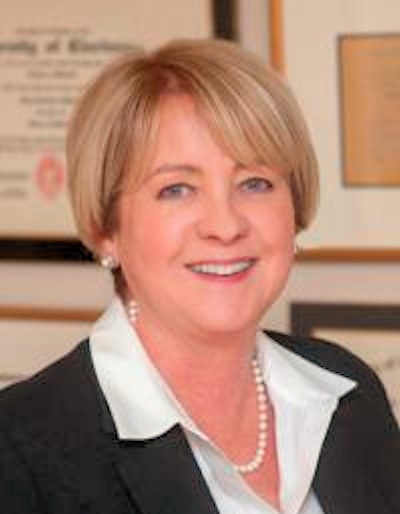 Dr. Mary Mahoney.
Dr. Mary Mahoney."We must redefine radiology to create a postpandemic practice model that rewards creativity, innovation, adaptability, and patient-centeredness. We also need to ensure that our academic and society leaders reflect the diverse community we represent and strive to provide an equitable and inclusive community," Mahoney said.
The pandemic overwhelmed emergency departments and caused staffing shortages, hiring freezes, and revenue losses. It put noncritical imaging studies on hold, and leaders scrambled to develop safety protocols. Research ground to a halt, and patients -- out of either fear or necessity -- put their healthcare on hold, Mahoney recalled.
Importantly, healthcare inequities were laid bare by the pandemic, Mahoney said. Because of location, lack of insurance or transportation, fear of losing their jobs, or even mistrust of the medical establishment, people were unable to access the critical care they needed.
"When COVID-19 arrived, everything halted, everything came to a stop. We found ourselves taking a detour down a dark and winding road," she said.
Considering the road ahead, it is imperative for radiologists to understand the importance of their roles in a value-based system and leverage tools that enhance our ability to provide subspecialized expertise to patients, the medical community, and the public at large, without limitations imposed by demographic or socioeconomic status, Mahoney said.
"We need to become less reactive and more proactive," she said.
Artificial intelligence (AI) represents one powerful tool that could prove to be a boon to radiology, Mahoney said. She noted that results from RSNA-sponsored AI challenges in brain tumor detection and COVID-19 detection presented at this year's meeting will produce a wealth of vital data to aid, research, and improve clinical practice.
Radiology can drive the future of medical care by using AI technology to improve workflows, Mahoney said. AI models are being developed to allow radiologists to focus more on what really matters to patients. When not burdened with a backlog of casework, doctors can pursue meaningful interactions with patients and their families, she said.
"For too long, radiologists have focused on the image at the expense of the person. We are experts at analyzing and deciphering images of every part of a patient's body, but the whole is greater than the sum of its parts," Mahoney said.
Ultimately, as the world's largest medical imaging forum, the RSNA meeting presents a unique opportunity to shine a light on healthcare inequities, both in the U.S. and globally, and to provide insights, research, and education on how to improve diversity and inclusivity in medical practice, Mahoney said.
She noted several sessions throughout the week specifically dedicated to meeting these issues, and she encouraged people to attend.
"As we emerge from the pandemic forever changed, we must take the lessons that we've learned from this crisis, adaptability, empathy, patient-centeredness, diversity, equity, and civility, and apply them all of them in our everyday lives," Mahoney concluded.
The RSNA is expecting about 19,000 in-person attendees at the meeting throughout the week, down significantly compared with 2019, when the conference was last held in person. The RSNA said that in addition to the 19,000 in-person attendees, 4,000 more people are registered to attend virtually. By comparison, the 2019 show had an attendance of 51,800.
In her remarks, Mahoney noted the 2021 RSNA meeting program is dedicated to the memory of Dr. Sanjiv Gambhir, PhD, chair of radiology at Stanford University, who died of cancer on July 18, 2020, as well as Dr. Lawrence Bassett, professor emeritus of radiological sciences at University of California, Los Angeles, who passed away suddenly on December 15, 2020, at his home in West Hollywood, CA.
Mahoney was appointed president of RSNA in December 2020. She is a professor of radiology and the Benjamin Felson Endowed Chair at the University of Cincinnati. She is also chief of imaging services at UC Health in Cincinnati.




